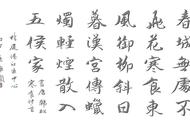b.设定小目标并执行
通过对失败的积极反思,我们会发现过去的失误,可以将失误和想要实现的目标整合起来,设定自己的目标与计划。
并将实现目标的计划路径拆解成可轻松执行、易于管理的小步骤:
找到想要实现的大目标。然后,弄清楚实现目标所需的每个步骤。
继续划分步骤,直到制定可以在一个月左右(甚至一个星期)内实现的小目标。
保持目标的难度适宜。如果目标太小和太简单,没有挑战性,容易失去动力;如果目标太困难了,容易失去信心。
将这些目标写下来并执行。
设定清晰的行动步骤与计划,在面对失败的挑战中,用更高效率取得好结果。
写在最后大叔没办法告诉,正在看这篇文章的你,面对失败究竟该坚持还是放弃。
选择放弃意味着要直面失败,但这并不意味着你和你的人生就失败了,生活依旧有很多精彩和美丽。
选择坚持则意味着再一次面对挑战,希望你能在内心做好准备再开始,别让第一次的失败,阻碍第二次前行的尝试。
坚持需要勇气,放弃也是。无论怎么选择,都祝愿你依旧拥有前行的信心。
世界和我爱着你 ~
- End -
References / 大叔参考的文献资料:
[1]Tykocinski, O. E., & Ortmann, A. (2011). The lingering effects of our past experiences: The sunk‐cost fallacy and the inaction‐inertia effect. Social and Personality Psychology Compass, 5(9), 653-664.
[2]Garland, H., & Newport, S. (1991). Effects of absolute and relative sunk cost on the decision to persist with a course of action. Organizational Behavior and Human Decision Processes, 48, 55–69.
[3]Oyserman, D., Bybee, D., & Terry, K. (2006). Possible selves and academic outcomes: How and when possible selves impel action. Journal of personality and social psychology, 91(1), 188.
[4]Brunstein, J. C., & Gollwitzer, P. M. (1996). Effects of failure on subsequent performance: The importance of self-defining goals. Journal of personality and social psychology, 70(2), 395.
[5]Nelson N, Malkoc S, Shiv B. Emotions Know Best: The Advantage of Emotional versus Cognitive Responses to Failure. J Behav Decis Mak. 2017;31(1):40-51.
[6]Knowing the Difference Between Reflection and Rumination Can Help You Better Manage Your Negative Thoughts.
,











